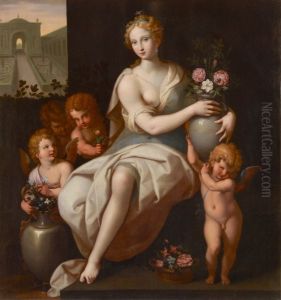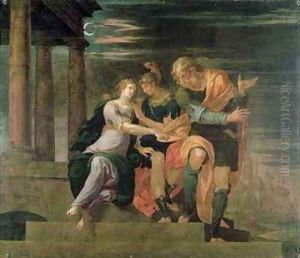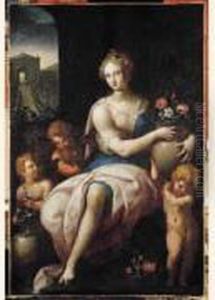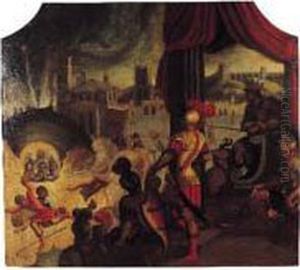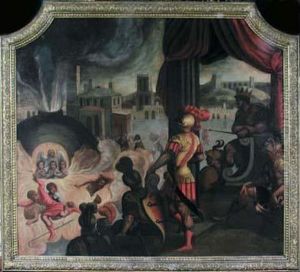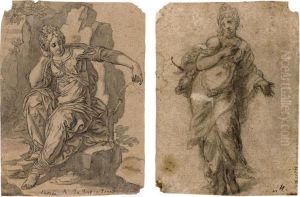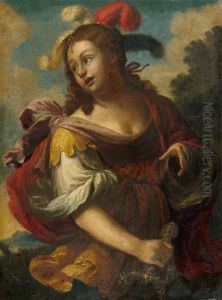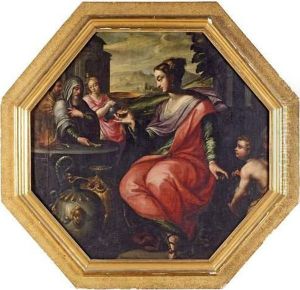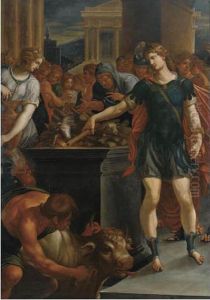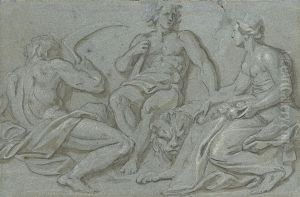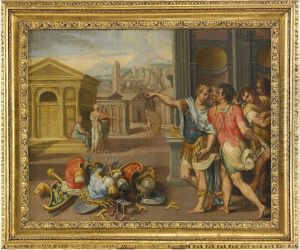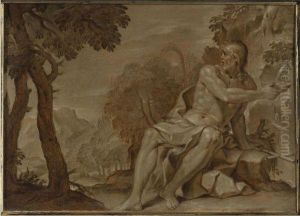Ambroise Dubois Paintings
Ambroise Dubois was a French painter and engraver, recognized for his contribution to the Mannerist school of painting, a style that emerged in Europe in the late Renaissance, characterized by artificiality, elegance, and a focus on aesthetic rather than realistic depiction. Born in Antwerp, in what is now Belgium, Dubois moved to France where he became a prominent figure in the French Renaissance, especially at the court of King Henry IV.
Dubois's work is notable for its intricate detail, vibrant colors, and the elongated forms of his figures, typical of Mannerist aesthetics. He was influenced by Italian masters of the Renaissance, as were many artists of his time who sought inspiration from Italy, the heartland of the Renaissance movement. His journey to Italy, particularly to Florence and Rome, played a pivotal role in shaping his artistic style and philosophy.
Upon his return to France, Dubois became the court painter to Marie de' Medici, the wife of Henry IV, and was heavily involved in the decoration of the Luxembourg Palace in Paris, one of his most significant commissions. His contributions to the palace's interior decoration include a series of mythological paintings that reflect his mastery of Mannerist techniques and his ability to weave complex narratives into his art.
Throughout his career, Dubois also worked on religious themes, portraits, and mythological scenes, leaving behind a legacy that would influence French art for generations. His style evolved over the years, but he remained true to the Mannerist aesthetic, with its emphasis on elegance, complexity, and a departure from the naturalism that had dominated Renaissance art.
Ambroise Dubois died in 1614, but his work continued to be celebrated for its contribution to the development of French art and its role in bridging the Renaissance and the Baroque periods. His legacy is preserved in various museums and collections in France and around the world, where his paintings continue to be admired for their beauty, technical skill, and historical significance.
